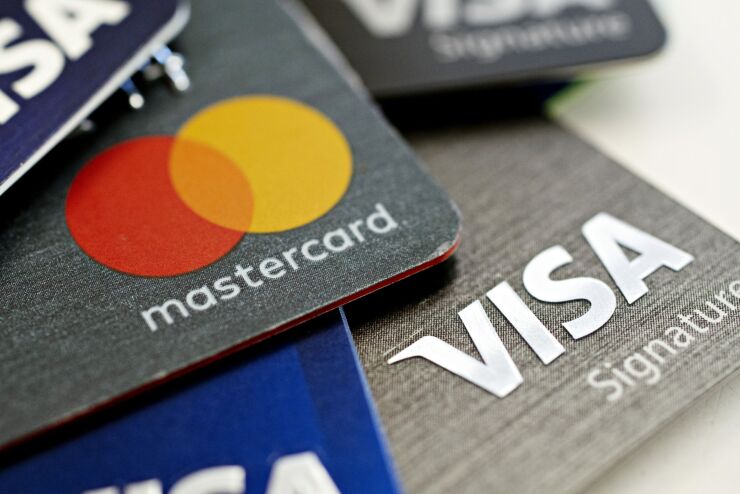Crypto has become a catalyst for the major card brands to win lucrative government contracts and international technology partnerships.
On the heels of Visa Chairman and CEO
"Across the whole crypto space we want to play a role in central bank digital currencies and private stablecoins," said Michael Miebach, Mastercard's CEO, during Thursday morning's earnings call.
Mastercard's recent moves include a deal with cryptocurrency exchange

Miebach envisions a two-tiered system for central bank digital currencies, in which the government mines the digital currency and the private sector distributes it. Mastercard sees opportunity in that tier, providing a test environment and identifying other uses for blockchain beyond facilitating a payment.
During the earnings call, Miebach discussed Mastercard's existing work in CBDCs through a partnership with the Central Bank of the Bahamas and Island Pay to link a prepaid card to the Bahamas'
Consumers, including tourists, can convert the digital Sand Dollar to traditional Bahamanian dollars to make purchases across Mastercard's global network.
"As we're doing with real-time payments, we're determining what can ride on top of the payment," Miebach said, adding smart contracts to support trade finance using central bank digital currencies could be an example. There's also a potential for Mastercard's services division to support stablecoins and other crypto. "There's going to be questions for cyber security. Is blockchain a backdoor for hackers? There will be a role here for the private sector and the government."
Cryptocurrency and other digital transactions are also driving Mastercard's digital ID strategy, which includes its recent acquisition of
"As e-commerce continues to grow, it's an unsustainable path to have more passwords," Miebach said. "We needed to strengthen up there."
Ekata uses AI to mitigate online fraud that has grown quickly during the pandemic-driven digital payments expansion.
Mastercard has worked on digital ID for the past several years with partners such as
"Ekata allows us to accelerate our efforts in digital ID," Miebach said. "Ekata has access to verifiable data points that allow identification in real time and produce accurate ID scores."
Mastercard reports most countries are recovering from the pandemic's economic impact as payment flows recover outside of cross-border travel. For the quarter ending March 31, Mastercard reported earnings of $1.83 billion, up from $1.69 billion the prior year. Earnings per share were $1.83, up from $1.68. FactSet analysts were projecting $1.58 per share. Net revenue was $4.16 billion, up from $4.01 billion, also ahead of analysts' projections of $4 billion. The card brand projects growth rates in the low to mid 20s growth rate year over year for the next quarter, subject to virus-related impacts.





